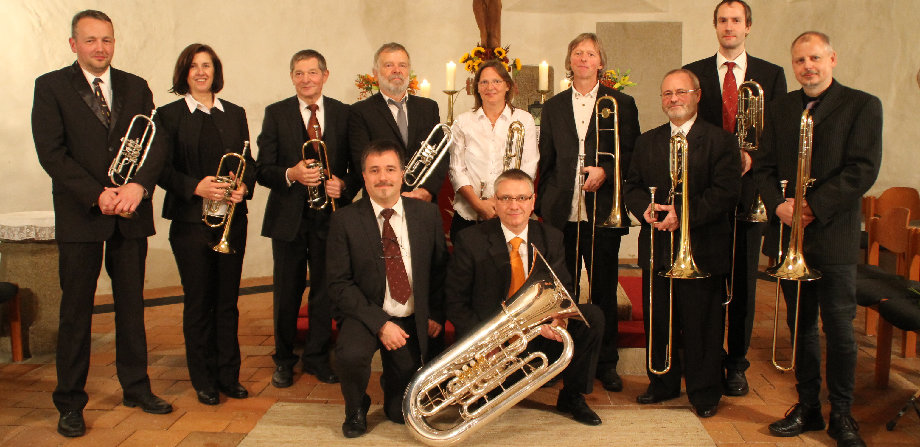PROTESTANT BRASS CHOIR
HISTORY OF THE BRASS CHOIR
The protestant brass choir began with the Moravian Church (Herrnhuter Brüdergemeinden) a congregation of Bohemian religious refugees and German pietists that moves into upper Lusatia in the early 18th century. There was an official decision from the Moravian synod as early 1764 telling of a brass choir. Although only the musicians of Herrnhut were initially mentioned, the actual origins of the brass choir are to be found in Westphalia and Lower Saxony. The musical development accompanied the revival movement of the 19th century. Central to this movement is a personal decision to follow Christ and leading a life of faith according to the Gospel. The brass choir was a result of this new religiousness.
There were two main centers of this movement. One was the protestant Jünglingsvereine (Youth Association), a predecessor of the YMCA, in Ostwestfalen-Lippe. The other was the Hermannsburg Mission in Lower Saxony. The first brass choir was founded in 1843 in Jöllenbeck in East Westphalia. This is today in Bielefeld.
The first brass society was founded in the Lüneburg Heath. In 1849, a choir in the Hermannsburg missions house was furnished with brass instruments. This was initiated from Theodor Harms. The Westphalia brass choir and the Lower Saxony brass society become models for the rest of Germany. By 1880 there were 160 brass choirs in the German Reich with over 2000 musicians. Johannes Kuhlo proudly said in 1933, „God has blessed the brass mission with a friendly crescendo. Around 30,000 musicians in Christian brass choirs proclaim his glory.“
PROTESTANT BRASS CHOIR WORK IN GERMANY (EPiD)
Today the umbrella organization „Evangelische Posaunendienst in Deutschland“ (EPiD) represents 29 indeThree important figures have formed and shaped the brass choir work the most. One was Johannes Kuhlo, called the „Brass General“, the „Brass Supervisor“ and unfortunately later the „Reich Brass Leader“, and the Saxon „Brass Father“ Adolf Mueller. Then after World War II, Wilhelm Ehmann (professor at the church music school of Herford) opened up brass choirs for new sounds and music that „imitated“ modern music.
The goal and the practice of a brass choir can be found in the 150th Psalm. „Praise him with the sound of the trumpet“ – „Making music to bring God praise and to bring joy to the people.“
Churches Circle Silesian Upper Lusatia (SOL)

The musicians in the Silesian Upper Lusatia (SOL) are part of the brass choir work in the Evangelical Church in Berlin, Brandenburg and Silesian Upper Lusatia (EKBO). In certain centers of this church region, there are select bands that musicians play in who are prepared to invest more time practicing than the generally expected amount. These bands are like light houses that act as a model for the brass orchestras in the congregations. What could we sound like? What kind of literature is new on the market? These select bands are also sought after for multi-congregational functions. Our motto is Praising God is our function. That’s why we also celebrate services in congregations that don’t have a brass choir of their own.

The „little choir“ within the brass choir work in the SOL has a 50 year old tradition with varying members and leaders. Sometimes it has had many musicians. Sometimes it was quite small. But it was always in the service of the brass choir work. A special emphasis is to serve congregations without their own brass choir in order to promote this work. At present, there are 15 members and it is lead by the church’s brass supervisor Steffen Peschel. At brass festivals, public events, church services and concerts, the brass choir shows that playing is a lot of fun and that even a amateur choir can produce advanced, high quality music. Its repertoire contains the whole spectrum of brass music, from old classics to pop and swing.
USA CONCERT TOUR 2019
WITH LAUSITZ BRASS


